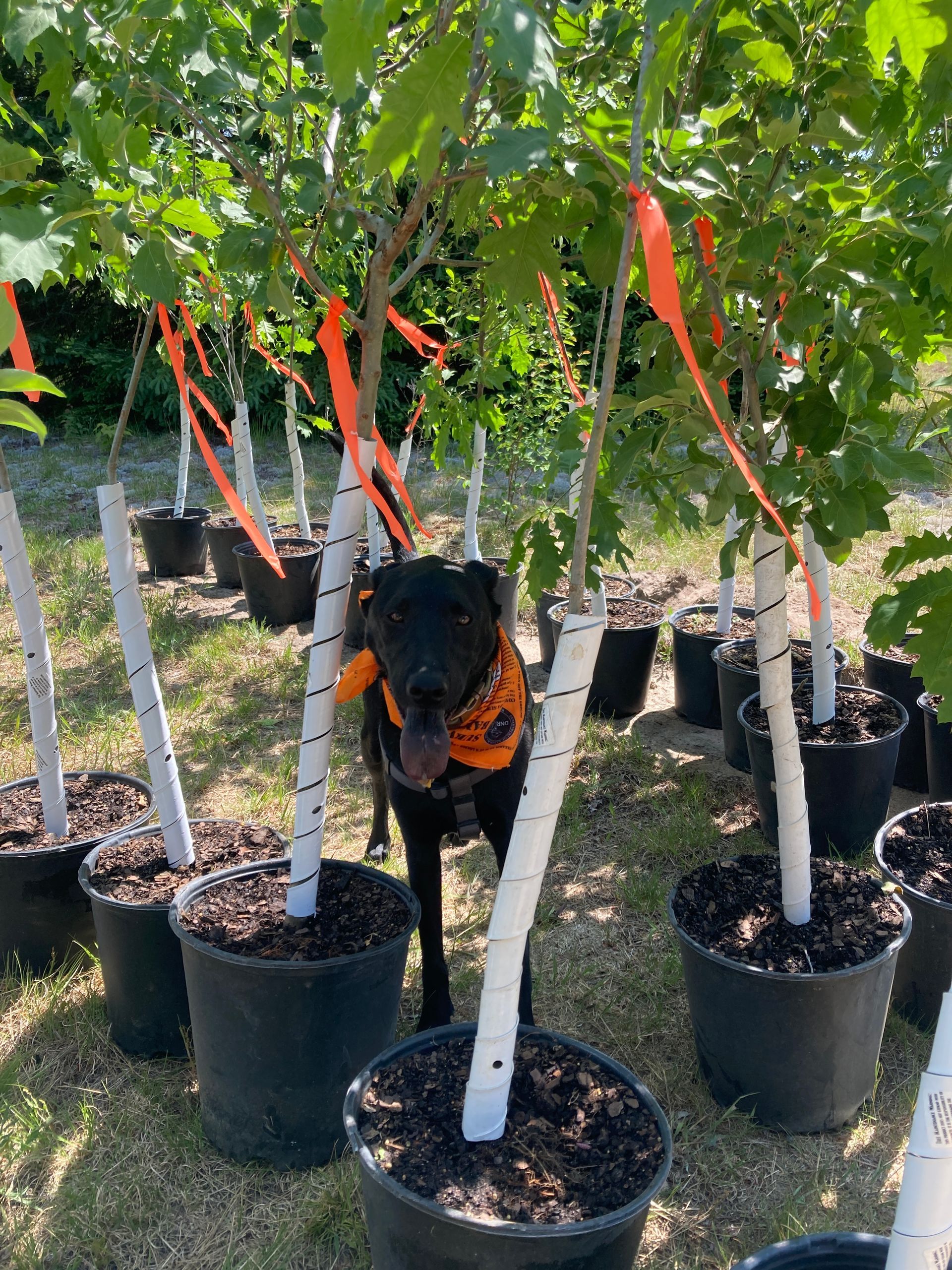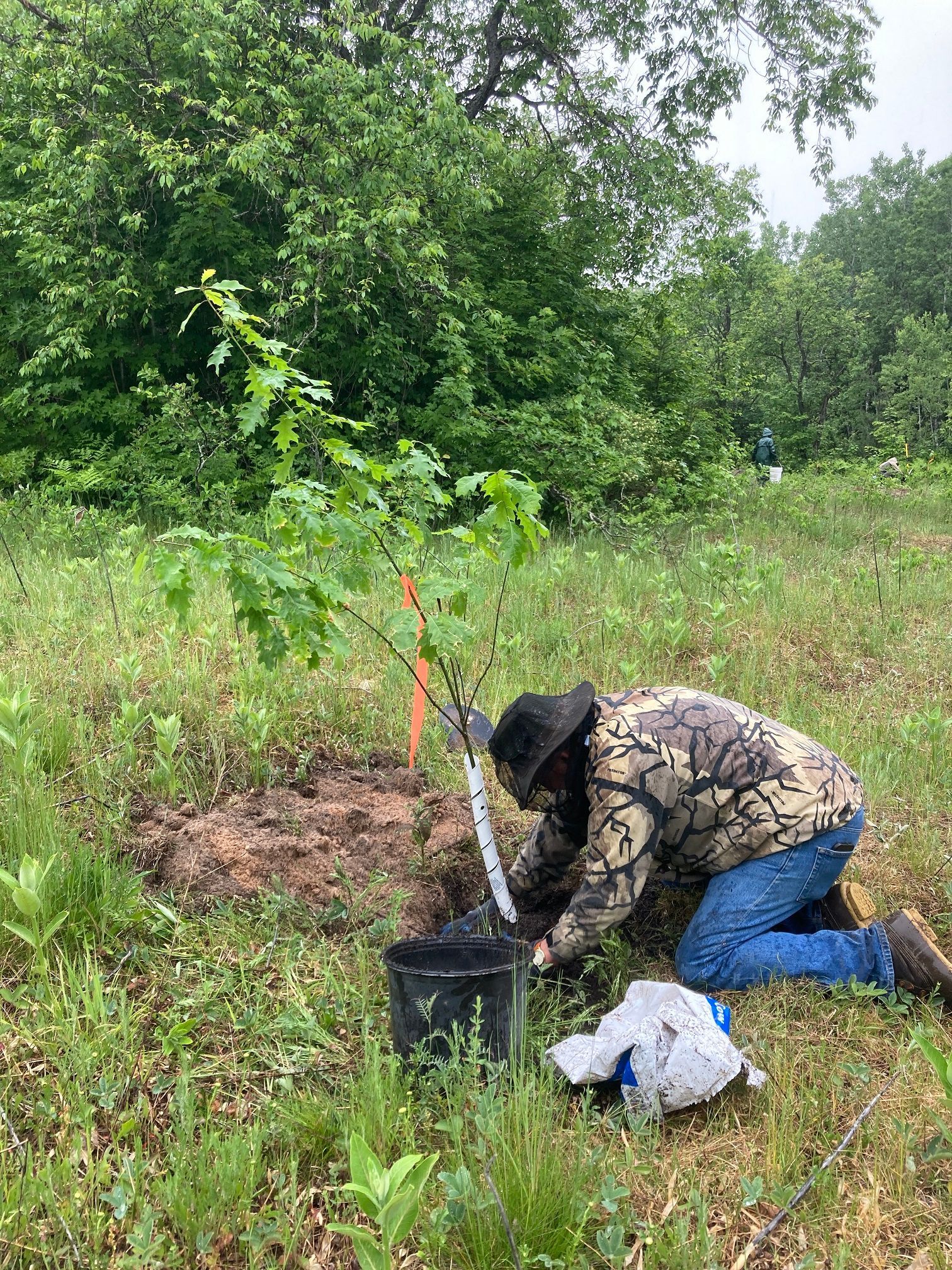OTG Volunteers Needed: Mast-Producing Tree Planting in the Newberry Forest Management Unit
MUCC’s On the Ground program is traveling to the U.P. soon, and we need your help to improve wildlife habitat! We will be at the Newberry Forest Management Unit in Luce County on Saturday, June 8, 2024, from 10 AM – 2 PM planting mast-producing trees. You are not required to stay for the entire duration of the project. All ages are welcome to attend, so invite your friends and fellow Yoopers to join us! For more details and to register, click HERE.
About the Project
During this event, a mix of red oaks and apple trees will be planted and fenced to improve forage for wildlife including white-tailed deer and upland game birds. We will meet at the DNR Customer Service Center in Newberry ( 5100 M-123, Newberry, MI 49868 ) and caravan about 20 minutes north to the project site. Volunteers are encouraged to bring a reusable water bottle, although snacks and water will be provided throughout the day. This event will take place rain or shine except in the case of severe weather so please plan and dress accordingly. All registered volunteers will receive lunch and a free volunteer appreciation gift for their efforts. Any necessary equipment including bug nets will also be provided.
Why is it Important?
Mast is the fruit that is produced by trees and shrubs. Mast-producing trees are important because they are a critical food source for wildlife. There are two different types of mast that trees can produce: soft-mast and hard-mast. Soft-mast fruit is soft and fleshy with a high sugar and moisture content. Trees like elderberry, highbush cranberry, and crab apple are soft mast-producing. Hard-mast fruit is also called a nut and is hard-shelled with a high protein and fat content. Tree species like oak, hickory, and beech are hard mast-producing trees.
Many species of wildlife benefit from mast-producing trees, such as deer, bears, turkeys, upland game birds, squirrels, foxes, and other small rodents. Songbirds specifically benefit from soft mast-producing trees because they offer a high-energy source and are readily available throughout the summer and fall. Hard mast-producing trees are specifically beneficial for bears because they are available during the fall and winter when bears are preparing for hibernation.
If you have any questions about this project please email Sarah Scheitz at sscheitz@mucc.org.
The post OTG Volunteers Needed: Mast-Producing Tree Planting in the Newberry Forest Management Unit appeared first on Michigan United Conservation Clubs .
Recent Posts





